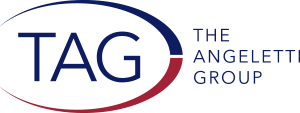As nonprofits continue to address social issues and advocate for equality, ensuring diversity within their teams is not just a moral imperative—it’s a strategic advantage. Diverse leadership and staff provide fresh perspectives, innovative solutions, and a stronger connection to communities served. But achieving diversity during the hiring process requires intentional and proactive steps.
Here are some effective strategies for improving diversity in your nonprofit’s hiring process.
1. Engage with Professional Associations for Diverse Groups
Professional associations exist for the advancement and networking of diverse populations, and these organizations are key resources in your search for diverse candidates. Groups like the Urban League, the African American Development Officers (AADO) Network, Native Americans in Philanthropy, Asian Americans/Pacific Islanders in Philanthropy, and Hispanics in Philanthropy are all committed to building diverse leadership in the nonprofit sector. These associations are not only talent pools but also offer a wealth of connections and recommendations.
2. Keep an Eye on Industry Accolades
Awards and recognitions are a good indicator of high-performing professionals in the nonprofit sector. Pay attention to awards given by professional ethnic associations and cultural groups in your community. These honorees are often leading voices in their respective fields and may be ideal candidates or excellent resource individuals to help you identify other qualified individuals.
Local, regional, and national awards ceremonies offer a way to spotlight and connect with standout professionals who are not only successful, but also respected within their communities.
3. Expand Your Geographic Search
Don’t limit your search to the immediate geographic area of your organization. In some regions, the demographics may skew in a way that limits access to diverse talent. Expanding your search to other cities or regions where there is a larger representation of minority groups can lead to better results.
For instance, you might look to larger urban centers with more diverse populations or regions with historically higher percentages of ethnic communities. Even if the position is based in a specific location, many roles can now be performed remotely, opening your search to a broader candidate pool.
4. Consider Candidates from Other Fields
Diverse talent might not always have a traditional background in nonprofit work, but they could have relevant skills from other fields. For example, individuals with experience in political canvassing, community organizing, or corporate communications may have transferable skills that would be valuable in nonprofit leadership roles.
These candidates may excel in people skills, communications, or outward-focused roles, which can all be essential in fundraising or executive leadership positions. It’s important to broaden your scope and recognize that potential candidates might not fit into the traditional mold—but they could still bring fresh perspectives and effective strategies to the table.
5. Look for For-Profit Professionals with Nonprofit Passion
Some of the best candidates might be working in the for-profit sector but have a passion for nonprofits through their volunteer efforts. These professionals might have skills in finance, operations, marketing, or management that can translate well to nonprofit leadership roles.
Nonprofit volunteer work is often an indicator of personal passion and dedication to social causes. If a for-profit professional has invested time and energy into nonprofit efforts, they could bring both valuable experience and deep commitment to your organization.
6. Be Proactive and Intentional
Perhaps the most important takeaway in recruiting for diversity is to be proactive. Start now.
Intentionality is key. Presenting a diverse slate of candidates takes extra effort, but it ensures you’re opening up opportunities to a wider range of applicants. Share job postings with affinity groups, associations, and communities that might not otherwise be reached through traditional recruitment channels.
Conclusion
Qualified, diverse candidates are out there, but it takes intentionality and creativity to find them. Expanding your network, engaging with diverse professional associations, and considering candidates with non-traditional backgrounds will strengthen your organization’s leadership and improve its effectiveness. At The Angeletti Group, we are committed to helping nonprofits build diverse, inclusive teams. Contact us today to assist you in conducting an executive search that includes sourcing a diverse pool of candidates.


